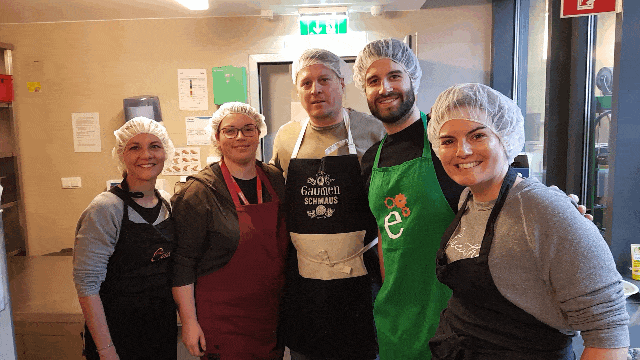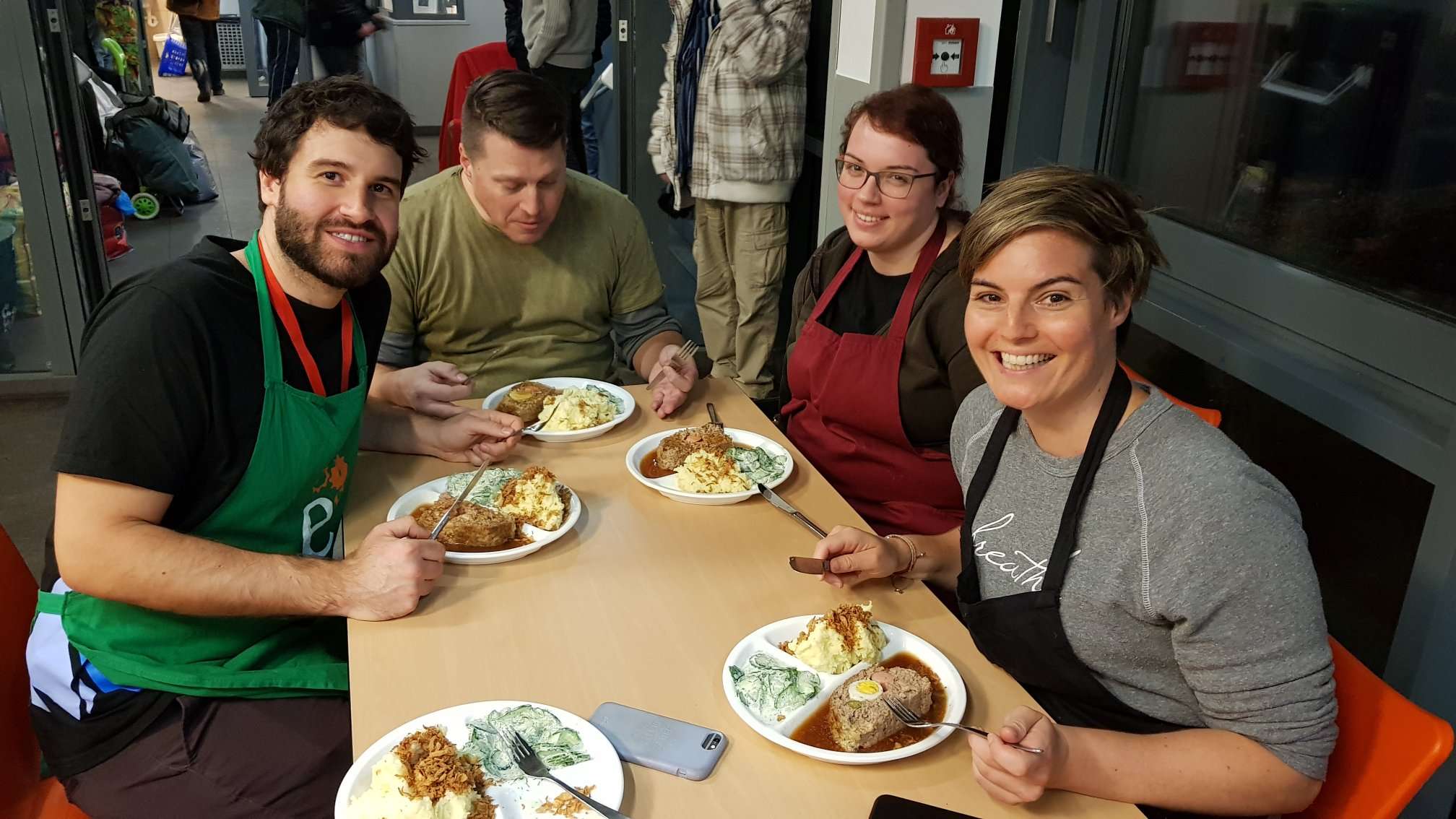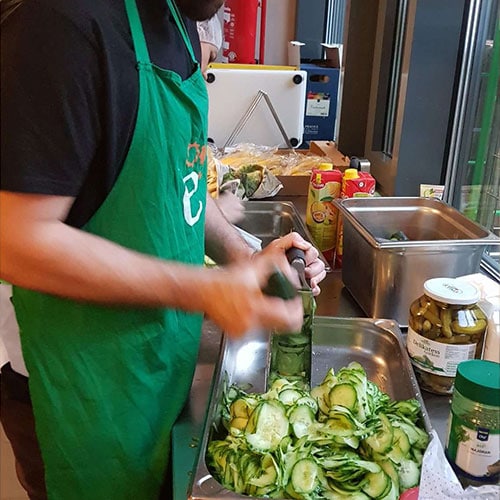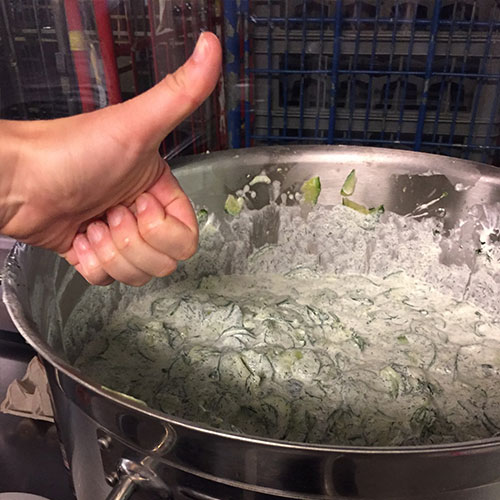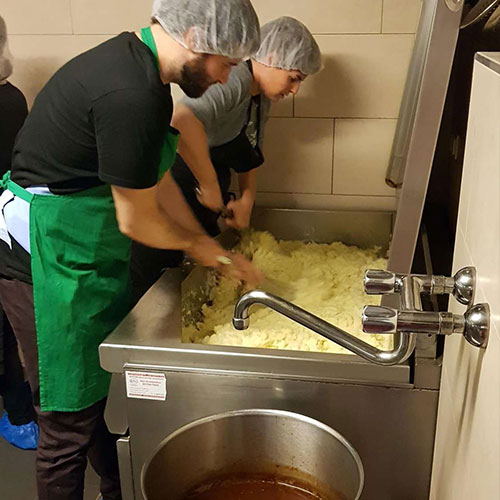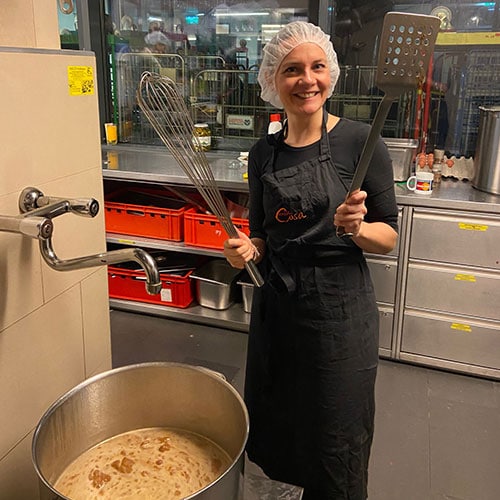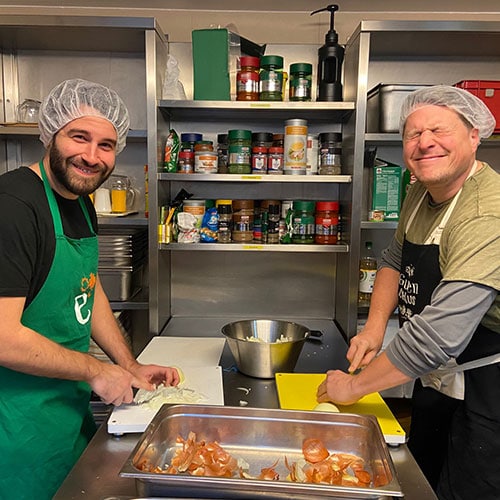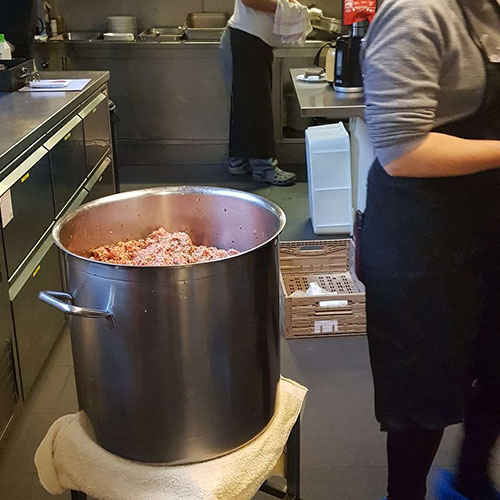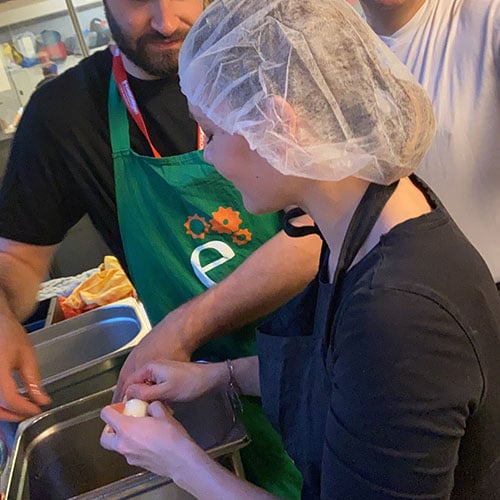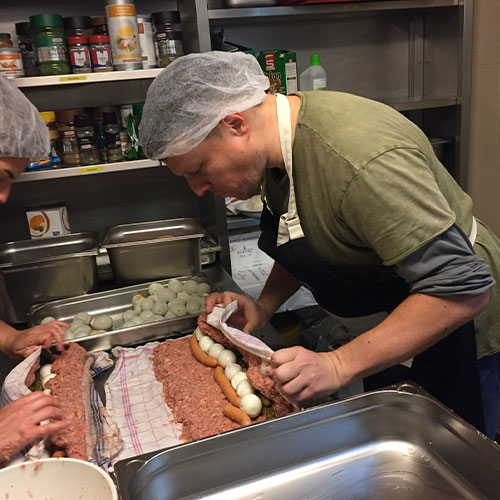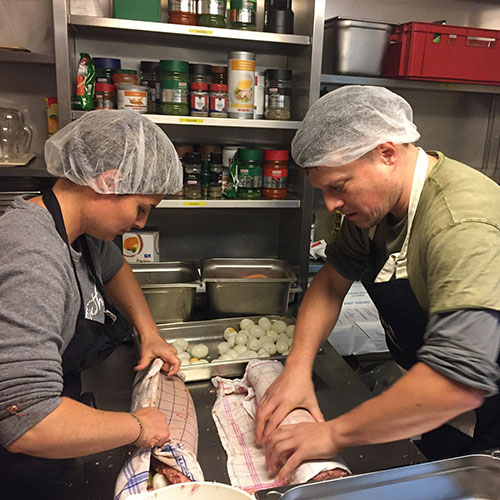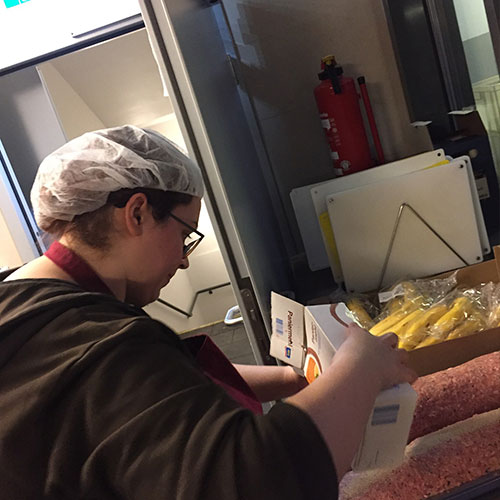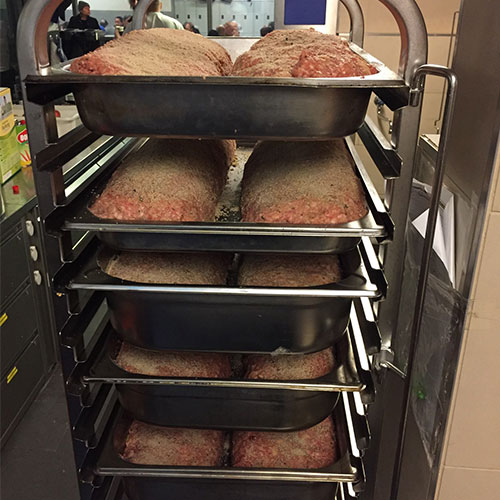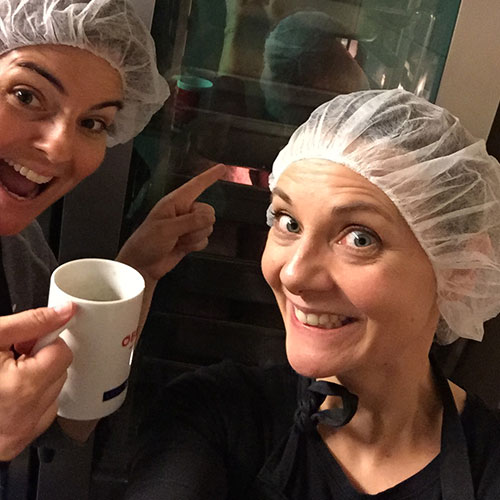Last week panagenda supported five staff to purchase, prepare, cook and serve dinner for 166 homeless people in Vienna’s Gruft. For more than 30 years, the “Gruft” has been Vienna’s best-known Caritas facility for homeless people. 24 hours a day and 365 days a year, it offers a safe haven and human warmth to people on the street. Those affected receive a warm meal, a place to sleep, clean clothes and the opportunity to shower. The support staff also helps homeless people reintegrate to society.
History of the Gruft
We asked Christian and Udo, themselves former Gruft patrons and our guides in the kitchen, where the name comes from. The English translation of gruft is crypt. And that’s exactly what it is… or was. In the summer of 1986 students of the Amerling High School offered tea and lard bread to homeless people in Vienna’s district of Mariahilf. As the months grew colder, they asked Salvatorian pastor and theologian Albert Gabriel whether he was able to provide space for the winter months. The only space he was able to offer was the crypt of the Mariahilfer Church.
What was once a place for the dead became a place to stay alive. With all due respect to Mariahilf’s deceased, the crypt was prepared in such a manner that the students could continue their charitable work over the Christmas period. Originally open for two hours a day, word spread and to cater to demand, opening hours were extended from 10am to 4pm. At the same time the offer increased from only simple hot meals and tea to clean clothes, the opportunity to shower as well as support services. Since October 1994, the Gruft is accessible 24 hours a day also offering beds to sleep in.
On your marks…
On the menu: Stefanie Braten. Having found out that a lot of food offered was pasta based, we wanted to create something more unique. Stefanie Braten is a classic of the Viennese kitchen. A type of meatloaf filled with sausages, pickles and eggs, it is commonly prepared after Easter to make use of left over Easter eggs. As you can imagine, the amount listed in the recipe linked above was not sufficient for up to 200 people. Instead Hafi and Karin went shopping prior to our official start at 3pm.
- 40kg minced meat
- 100 eggs
- 75 white bread rolls
- 13L milk
- 5kg onion
- 2.5kg breadcrumbs
- 5 larges glasses pickles
- 3 hands full salt
- 7 bags parsley
- 2 hands full marjoram
- 3L oil
- 2 large boxes pre-made mashed potatoe
- 90 cucumbers
- 7.5L sour cream
- 4 bulbs garlic
- 1 hand full pepper
- 1L vinegar
Get set…
After we all gathered on site, there was a quick briefing to allocate roles. The teamwork experienced across 3 different company departments was phenomenal. We cooked 100 eggs, chopped 5 kilos of onion, mixed 40 kilos of minced meat in huge vats and sliced 90 cucumbers.
Finally, we transported about 25 large roasts filled with eggs, pickles and sausages into an industrial convection oven. But the work was not yet done – the cucumber salad had its final touches and the ready-mash and sauce still had to be mixed together.
We also had to prepare our serving stations before we rested and rehydrated for a few minutes to work off the queue of hungry people that was already beginning to form.
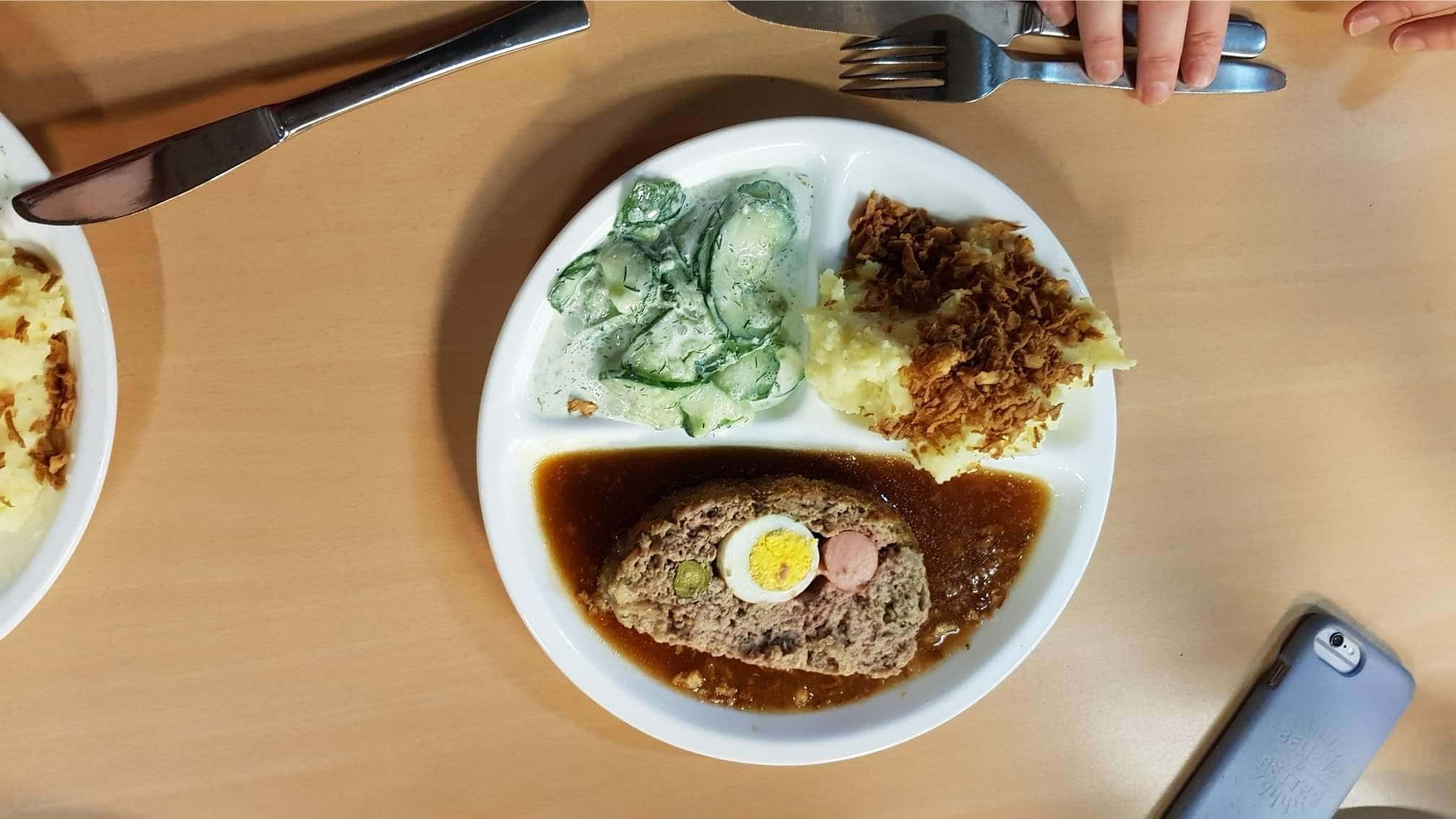
GO!
The first plate was handed over at 6:40pm. As a seamless assembly line, Katrin offered a piece of fruit of yoghurt for dessert, Karin placed the mashed potato on the plate, Hafi the meat loaf next to it, myself the fried onion on the mash and gravy on the meat before Julia served the cucumber salad and then handed the entire meal to the patron with a smile and, I kid you not, 166 “enjoy your meals.” The last plate was handed over at 7:05pm when our guide Christian yelled “End of service!” to which all patrons stopped eating and applauded.
Anyone that has served 166 plates in 25 minutes to then be cheered for in such a manner, knows the uplifting feelings of gratitude that were streaming through our every being. If not, it’s how I imagine the soldiers felt in Gladiator when they won the battle, Maximus yells “Roma Victor!” and the surviving soldiers lift their swords and cheer in victory cue emotional background music.
Except our general wasn’t Maximus but Christian, our swords were kitchen utensils, our helmets were hair nets and our armour the aprons. Instead of celebrating the taking of life though, we celebrated the giving of energy to continue life. It was an incredible feeling that was topped off by individuals coming back to thank us personally for what they called, an amazing meal.
Despite all the emotion and good food, it’s not just about a single meal or a few hours of work. It is about an understanding between different kinds of people and the ability to recognize the needs of individuals who are often only seen as a statistic.
If you yourself now have a taste for it, give it a go. Many cities offer the opportunity to help out in soup kitchens or day centers for the disadvantaged. We’d love to hear about your own experiences in the comments below.
